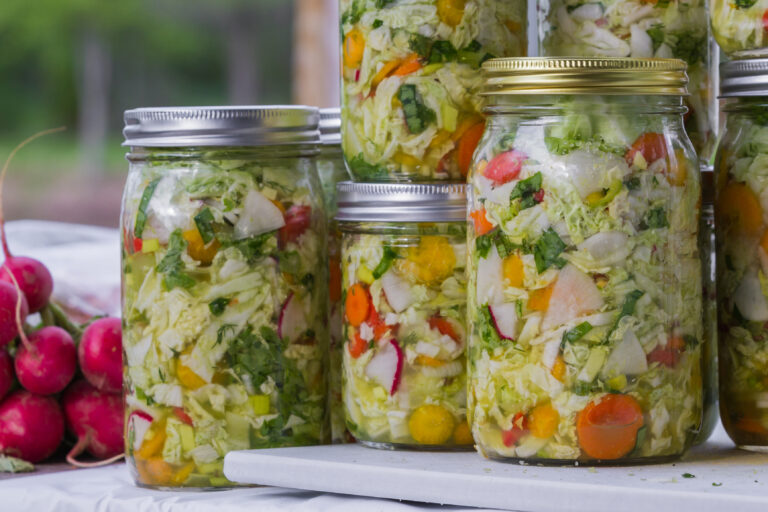I have recently been on a new and interesting journey. Realizing that our commercial foods are so nutritionally depleted, and desiring to grow my own foods, I naturally contemplated methods of preserving foods. Not just preserving the foods, but preserving the nutritional density of the foods. Canning seemed to be the most logical for nuts like me that have nothing else better to do with their limited time, but it has some problems. So I began contemplating how it’s been done for eons of time. Canning has only been around for about 150 years. What did they do before that?
The intent of canning is to kill the enzymes. Enzymes are living entities (so to speak) and the life of the food and assists in digestion of that food. To can is to kill anything that could possibly spoil. It is heated to high temperatures, for long periods of time. Nutrients are lost. It has to be done perfectly or you could wind up with botulism, which is deadly. I have not learned the art, but was just beginning to when I was made aware of these issues.
So, back to the original question: What are ancient preserving methods? They are salting/brining, lacto-fermenting, smoking, and pickling in vinegar. Lacto-fermentation is the most common. In evaluating these methods, I thought immediately about nutrient density. Smoking meats preserves the heat labile amino acids, B-Vitamins and other nutrients. Wonderful. Lacto-fermentation activates the enzymes instead of killing them, helping to render the nutrients more bio-available to the body. Excellent. Salting or brining preserves the nutrients, but can be overwhelming. Vinegar is good, providing only raw apple cider vinegar is used. It is helpful for digestion and many health issues.
The next question has to be safety. Many people are concerned about the safety of lacto-fermentation because to ferment, foods are left unrefrigerated for periods of time. Salt is the key. Salt is essential to life. We need salt for protein and carbohydrate digestion, cellular metabolism, brain development, joint health and adrenal function. Unrefined salt has a complex of trace minerals.
U.S. Department of Agriculture research service microbiologist Fred Breidt says properly fermented vegetables are actually safer than raw vegetables, which might have been exposed to pathogens like E. coli on the farm. “With fermented products there is no safety concern. I can flat-out say that. The reason is the lactic acid bacteria that carry out the fermentation are the world’s best killers of other bacteria,” says Breidt, who works at a lab at North Carolina State University, Raleigh, where scientists have been studying fermented and other pickled foods since the 1930s. Breidt adds that fermented vegetables, for which there are no documented cases of food-borne illness, are safer for novices to make than canned vegetables.”
Lacto-fermenting foods, such as homemade yogurt, sauerkraut, and pickles is not only fun, but healthy too. These foods are high in enzymes and help digestion and supply the beneficial bacteria for the gut – healthier than buying probiotics in a bottle! Lacto-fermentation is experiencing a renaissance as people are searching for greater nutrient density from their foods.
©2011 Holly A. Carling, O.M.D., L.Ac., Ph.D.







